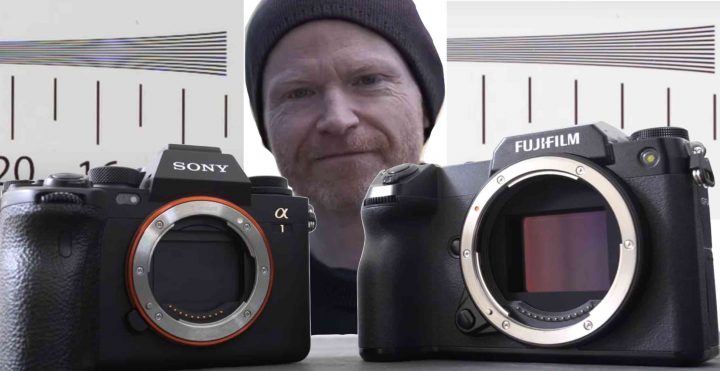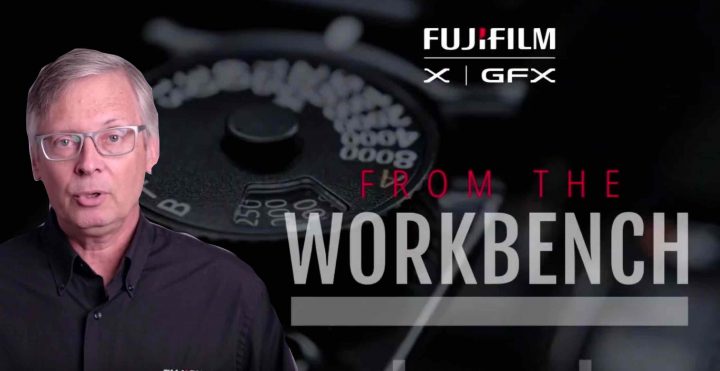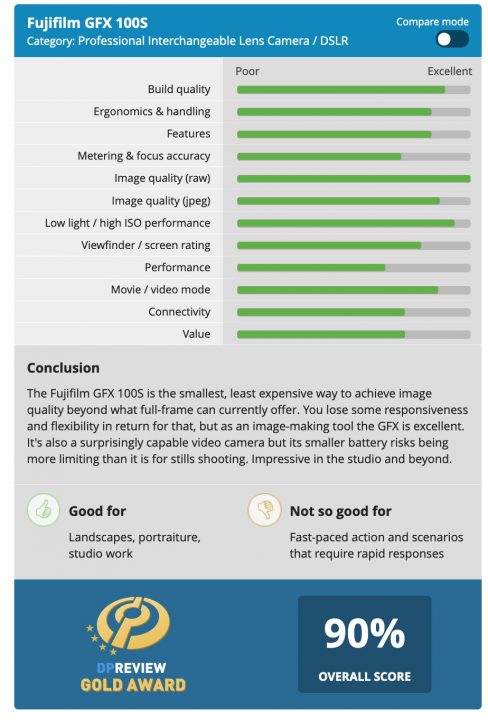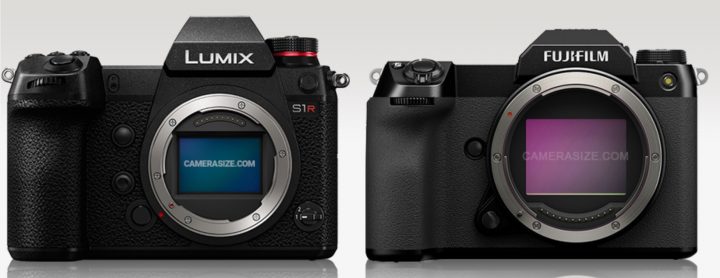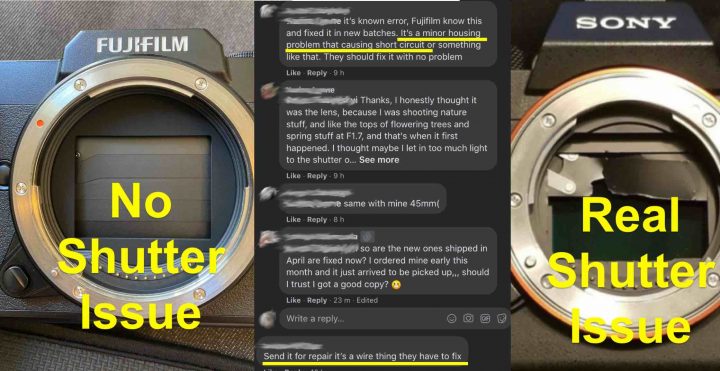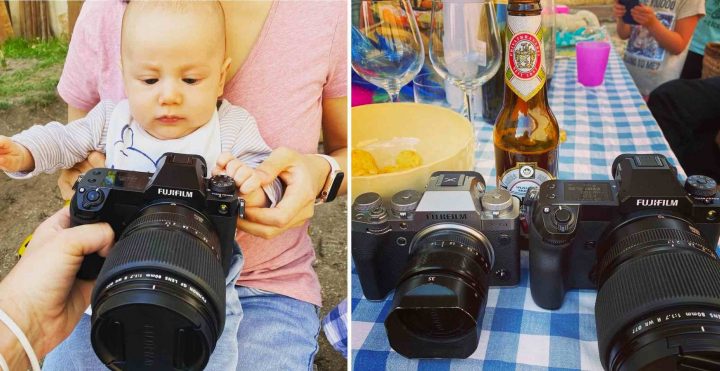
My First GF Lens
So guys, the decision has been made.
In the last second, I took advantage of the €500 rebate on selected Fujinon GF lenses and I bought the Fujinon GF32-64mmF4, which was your most recommended G mount lens for landscape photography. Thanks for helping me out with the decision :).
I still don’t own it, as like everywhere on the world, Fujinon G mount lenses are a rare good.
In fact, when I went to my local store, the store owner told me that since Fujifilm launched the GFX100S, sales for GFX gear went through the roof. He also told me that for many of his customers, the Fujifilm GFX100S is their first GFX camera and this also pushes sales for G mount lenses. That’s why they run out of stock constantly.
So I had to put myself in line, and now I wait for a lens that is harvesting 5 star reviews all over the web:
In Crop we Trust
Now, if you have read my GF lens help article, you’ll know that over the last few years, I somehow shifted from privileging dramatic wide angle shots to focusing more on compressed landscape shots.
This is why I was hesitant between getting the GF32-64mmF4 or the GF45-100mmF4 to start with.
But here is the thing: I can’t get into my frame parts of a landscape scenery that are too wide for my lens (unless I stich). On the other hand, thanks to the power of the Fujifilm GFX100S and its 102 megapixel, I can crop the heck out of my images and still get usable and printable results.
Therefore, afraid to miss out on something beautiful on the wide end, I decided to go with the wider zoom, trusting the crop-power of my GFX100S to get a more compressed look.
In fact, I am now thinking that as a second lens, I’ll probably go for the Fujinon GF100-200mmF5.6, which I got my hands on in store, and it actually surprised me how light it is for its size. “Definitely portable” I thought. It will fit well and be easy to carry in my Photohiker trekking backpack.
But of course one step after another.
In early 2021, I already supported Fujifilm by buying the XF27mmF2.8 R WR (which you can see here), the XF80mm Macro, the Fujifilm GFX100S and the GF32-64mmF4. One more 2K lens right now would mean deciding between gear and marriage. ;)
But in not too distant future, I imagine my GF lens arsenal to look like this:
Yep, no fast lenses in the lineup for now, but I have a couple of f/1.2 and f/1.4 primes on the X system, so I’ll get plenty of bokeh out of that system when I need it.
So, the Fujifilm GFX100S and the GF32-64mmF4 will mark my first steps into the G mount system. Now all I need is to get those nice packages shipped, and I hope that maybe this summer I can already hike on the Dolomites with it.
Crop & Print
I love to print. From photobooks to single images.
And sometimes I print rather big.
But even my biggest print at my home (90x60cm / 35×23 inches) looks absolutely fantastic when taken with 24 MP.
So why the heck do I need a Fujifilm GFX100S, if my APS-C gear does a great job already?
The answer is: crop!
In fact, I assume that not only for me, but also for many of you, cropping is a very fast and effective post production step we sometimes take to improve our images.
So you get it: I don’t need to print bigger. But what the GFX system allows me to do better than any other system out there, is to still print big even images that are significantly cropped.
For example, this image I took at the Gardena mountain pass with my X-T4 and XF10-24mmF4 looks great on the web. But truth is that I had to crop quite a bit to get it how I wanted, hence mostly focused on the Sasslong. And while on Instagram it still looks great, I doubt I could print it as big as I sometimes like to print.
But if my starting point would have been 102 Megapixel instead of 50MP or 26MP, then I’d know I’d still retain so much information in my cropped image, that I could still make a huge epic print out of it.
With that said, every system has its Pros and Cons. The balance Fuji’s APS-C system offers remains unmatched to me compared to full frame of medium format. But the GFX shines in an area where I love to take pictures and to print: landscape photography.
This is why I bought the Fujifilm GFX system, and I look forward to finally capture the lovely Dolomites with it ;).
Fujifilm GFX100S
Fujinon GF80mmF1.7
Follow FujiRumors on Patreon, Facebook, Instagram, RSS-feed, Youtube, Flipboard and Twitter
All GF Lenses


